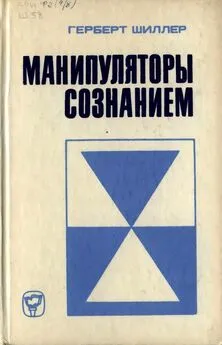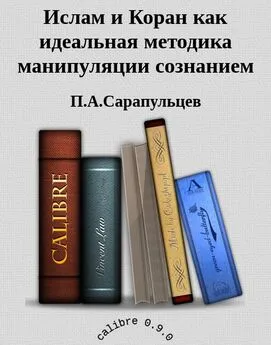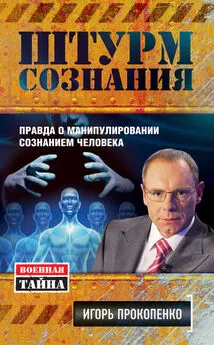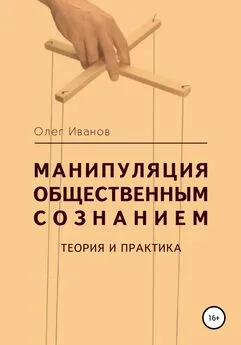Герберт Шиллер - Манипуляторы сознанием
- Название:Манипуляторы сознанием
- Автор:
- Жанр:
- Издательство:Мысль
- Год:1980
- Город:Москва
- ISBN:нет данных
- Рейтинг:
- Избранное:Добавить в избранное
-
Отзывы:
-
Ваша оценка:
Герберт Шиллер - Манипуляторы сознанием краткое содержание
Известный американский ученый профессор Герберт Шиллер на протяжении длительного времени выступает с острой критикой системы американской буржуазной журналистики, ее методов и приемов.
Советскому читателю предлагается ознакомиться с двумя книгами Г. Шиллера — «Манипуляторы сознанием» и «Средства массовой информации и культурное господство»,—объединенными общим названием.
Работы Г. Шиллера помогают лучше понять важнейшие аспекты современной идеологической борьбы.
1980 год.Манипуляторы сознанием - читать онлайн бесплатно полную версию (весь текст целиком)
Интервал:
Закладка:
7 Quoted by John S. Knight, op. cit., p. 476.
8 Report of the United States Delegates to the United Nations Conference on Freedom of Information. U. S. Departament of State Publication 3150, International Organization and Conference Series 111. 5. Washington, 1948.
9 John S. Knight, op. cit., pp. 472—473.
10 Kirk H. Porter and Donald Bruce Johnson. National party platforms, 1840-1964. Urbana, 1966, pp. 404, 413.
11 Congressional records, 90-th Congress, 8044 : 58, Stat. (pt. 2), 1119.
12 "The New York Times", November 29, 1944.
13 "Editor and publisher", December 2, 1944, p. 7.
14 "The New York Times", November 29, 1944.
15 "Editor and publisher", April 21. 1945, p. 15.
16 Report of the United States delegation to the Inter-American Conference on problems of war and peace (Mexico City, Mexico, February 21 — March 8, 1945). U. S. Departament of State Publication 2497, Conference Series 85. Washington, 1946, p. 21.
17 Proposed educational and cultural organization of the United Nations. U. S. Departament of State Publication 2382. Washing- ton, 1945, pp. 5—7.
18 Luther H. Evans. The United States and UNESCO; A Summary of the United States delegation meetings to the Constitutional con- ference of the United Nations Educational, Scientific and Cultural Organization, in Washington and London, October — November 1945. New York, 1971, p. 11.
19 Report of the United States Comission for the United Nations Educational, Scientific and Cultural Organization to the Secretary of State, 1947.
20 Llewellyn White and Robert D. Leigh, Peoples speaking to peoples. A Report on International Mass Communications from the Commision on freedom of the press. Chicago, 1946.
21 First session of the General Conference of the United Nations Educational Scientific and Cultural Organization, Paris, November 19 — December 10, 1946. Report of the United States delegation, with selected documents. Washington, 1947, p. 17.
22 Resolution 2/9 of June 21, 1946, Economic and Social Council Official Records (I-st year, 2-nd Session). New York, № 8, p. 400.
23 Yearbook on Human rights for 1947. New York, 1949, p. 439.
24 Ibid.
25 William Benton (Chairman, United States delegation to the freedom of information Conference), Address delivered before the Anglo-American press Club, Paris, April 7, 1948, pp. 518—520.
26 "Accomplishments of the United Nations Conference on Freedom of State*; 1948, I (3), June.
27 United Nations documents, E/Conf. 6/79 and E/1050, August 28, 1948.
28 John B. Whitton. The United Nations Conference on Freedom of Information and the movement against international propaganda.— "American journal of international law", 1949, 43 (January), p. 76.
29 "Economist", May 1, 1948, p. 701.
30 Thomas Guback. The international film industry. Bloomington, 1969.
31 Kaarle Nordenstreng and Tapio Varis. Television traffic — a one-way street? — "Report and Paper on Mass Communication'9, № 70, Paris, UNESCO, 1974.
32 Herbert I. Schiller. The Mind Managers. Boston, 1973.
33 Robert D. Leigh. Freedom of communication across national boundaries. — "Educational Record", 1948, 29 (October), p. 382.
34 Ibid.
35 Report of the working group on direct broadcast satellites on the Work of Its fourth session. A/AC, 105/117. New York, June 22, 1973, Annex I, p. 1.
36 UNESCO declaration of guiding principles on the use of satellite broadcasting for the free flow of information, Spread of eduction and Greater cultural exchange. Document A/AC, 105/109, 1972 (mimeographed).
37 Frank Stanton. Will they stop our satellites? — "The New York Times", October 22, 1972.
38 Ibid.
39 Earl L. Vance. Freedom of the press for whom? —- "Virginia Quarterly Review", 1945, 21 (Summer), pp. 340—354.
40 John Scali, U. S. delegate to tne United Nations. Speech before the General Assembly. — "The New York Times", December 7. 1974.
41 "The New York Times", November 23, 1974.
42 "The New York Times", December 12, 1974.
43 Final recomendations of the Helsinki consultations. Helsinki, 1973, p. 15.
44 Conference on security and cooperation in Europe, Verbatum Records, Part I, CSCE/I/PV. 5, Helsinki, July 5, 1973, Sir Alec Douglas Home.
45 Urho Kekkonen. "The free flow of information: towards a re- consideration of national and international flow of television program- mes. University of Tampere, May 21, 1973.
1 Kaarle Nordenstreng and Herbert l. Schiller. Helsinki: the new equation. — "Journal of Communication", 1976, 26 (1), pp. 130— 134.
2 Analysis of problems and table of objectives to be used as a basis for medium — term planning (1977—1982). Document 18 c/4. Paris, UNESCO, 1974, p. 28.
3 Leonard H. Marks. International conflict and the free flow of information. — "Control of the direct broadcast satellite: values in conflict". Palo Alto, 1974, p. 66.
4 Ibid., p. 68.
5 Frederick W. Frey. Communications and development. — Ithiel de Sola Pool et al (Eds.) Handbook of communications. Chi- cago, 1973, p. 400.
6 "Statistics on radio and television, 1950—1960n and "Statistical Yearbook, 1962". Paris, UNESCO.
7 Iskandar Alisjahbana. 'Technology and development", paper presented at International Broadcast Institute general meeting. Mexico City, September 1—5, 1974.
8 Nicholas Garnham. "Trojan horses: some socio-political implications of communication technology", paper presented at International Broadcast Institute general meeting. Mexico City, Sept. 1—5,1974.
9 Raymond Williams. Television: technology and cultural form. London, 1974, pp. 13, 19.
10 Dallas Smythe. After bicycles what? 1973 (mimeograhed).
11 N. Garnham, op. cit.
12 Barry Commoner. The closing circle. New York, 1972, pp. 266— 267.
13 Stanton A. Glantz and Norm V. Albers. Department of defence reserch and development in the university. — Science", 1974, 186 (4165), p. 706.
14 Ibid., p. 710.
15 Herbert I. Schiller. Mass communication and American empire. New York, 1969.
16 Joseph N. Pelton. INTELSAT: politics and functionalism. Mt. 1974, p. 158.
17 N. Garnham, op. cit.
18 David Dickson. Alternative technology. Glasgow, 1974.
19 John Lent. "Mass media in the developing world: four conundrums", paper presented before the International Association for Mass Communication Research. Leipzig, September 12—20, 1974, p. 4.
20 Nicholas Wade. Green revolution II. Problems of adapting a western technology. — "Science", 1974, 186 (4170), pp. 1186 — 1192.
21 "The international herald tribune", March 23 — 24, 1974.
22 Tabita M. Powledge. Dangerous research and public obligation. — "The New York Times", August 24, 1974.
23 Leon R. К ass. The new biology: what price relieving man's estate? — "Science", 1971, 174 (4011), pp. 779—788.
24 Ibid., p. 786.
25 Hamid M owl ana. The multinational corporation and the diffusion of technology. — A. A. Said (Ed.). The new sovereigns: multinational corporations as world powers. New Jersey, 1975, p. 83.
26 Kathleen Teltsch. Space plans frustrate the have — nots. — "The New York Times", May 14, 1972, p. 13.
27 Gunnar Adler-Karlsson. The political economy of east — west — south cooperation (unpublished manuscript from Wiener Institut fur Internationale Wirtschaftswergleichs), 1974, p. 57.
28 Frantz Fanon. The wretched of the earth. New York, 1965, pp. 253—255.
29 D. Smythe, op. cit.
30 Iskandar Alisfahbana, op. cit., p. 10.
31 Juan E. Corradi. Cultural dependence and the sociology of Knowlenge: the Latin American case. — "International journal of con- temporary sociology", 1971, 8(1), pp. 48—49.
32 Голосование по этому поводу в ООН и ЮНЕСКО в 1973 и 1974 гг. неизменно приводило к тому, что Соединенные Штаты ока- вывались в почти полной изоляции. В докладе, отражающем американскую позицию, отмечалось* "Настаивая на том, чтобы не было никакого международного соглашения, Соединенные Штаты оказались в изоляции, а в некоторых странах к ним стали относиться даже враждебно. Позиция США по этому поводу не встретила поддержки ни в одной стране, даже из числа тех, которые высоко ценят свободный поток информации и идей" (Paul L. Laskin and Abram Chayes. A brief history of the issues. In: "Control of the direct broadcast satellite: values in conflict", op. cit., op. 3—14).
33 Edwin B. Parker. Technology assessment or institutional changes? — G. Gerbner, L. Gross and W. Melody (Eds.). Communications technology and social policy. New York, 1973, p. 541.
34 "Science", 1975, 188 (4185), p. 213.
1 Edwin В. Parker. Social implications of computer/telecommunications systems. Draft of paper prepared for session "A" of the conference on computer/telecommunications, committee for scientific and technological policy, organization for economic cooperation and development. Paris, february 4—6, 1975.
2 Government of Finland, office of the council of state, Gune 1972.
3 "The New York Times", January 25, 1975.
4 Report of the meeting of experts on communications policies and planning, July 1972, document COM/MD2/4. Paris, UNESCO, decern ber 1972.
5 Communications policies in Hungary, Ireland, Sweden, Yugoslavia, Federal Republic of Germany. Paris, UNESCO, 1974.
6 International broadcast institute. Considerations for a European communications policy. London, 1973.
7 Robert Wangermee. Television, new broadcasting techniques and cultural development". Memorandum, document CCC/FES (72) 98, Strasbourg, council of Europe, October 9, 1972.
8 "The labor party". — "Tne people and the media". London, 1974.
9 Programme commune de gouvernement de la Parti Communiste Francaise et de la Parti Socialiste (27 juny 1972). Paris, 1972.
10 Communications policy workshop, ICODES (instituto Colombia desararollo social). Bogota, february 23—28, 1975 (mimeographed).
11 Revolution africaine, 1973, № 499, 14—20 September.
12 Ibid.
13 Proposals for a communications policy for Canada. Ottawa, march 1973.
14 Thomas Guback. Cultural identity and film in the European economic community, paper presented at conference "Film in Europe", London, February 21—23, 1974.
15 Kaarle Nordenstreng and Tapio Varis. Television traffic — a one—way street? — "Report and papers on mass communication", 70. Paris, UNESCO, 1974.
16 International economic report of the president, transmitted to congress february 7, 1974. Washington, D. C, 1974, p. 70.
17 Ithiel de Sola Pool. The rise of communications policy research.— "Journal of communication", 1974, 24 (2), pp. 31—42,
18 Raymond Williams. Television: technology and cultural form. London, 1974, p. 19.
19 Social indicators 1973, executive office of the president, office of management and budget. Washington, D. C, 1973, p. 225.
20 F. Kemper*. Democratization and participation in the dutch press, paper presented before the international association for mass communication research. Leipzig, September 12—20, 1974.
21 Meeting of international advisory panel on communication research Paris, UNESCO, October 15—19, 1973. "Communication research policies and planning*' (mimeographed working paper). Paris, UNESCO, October 1973, p. 3.
Читать дальшеИнтервал:
Закладка:







